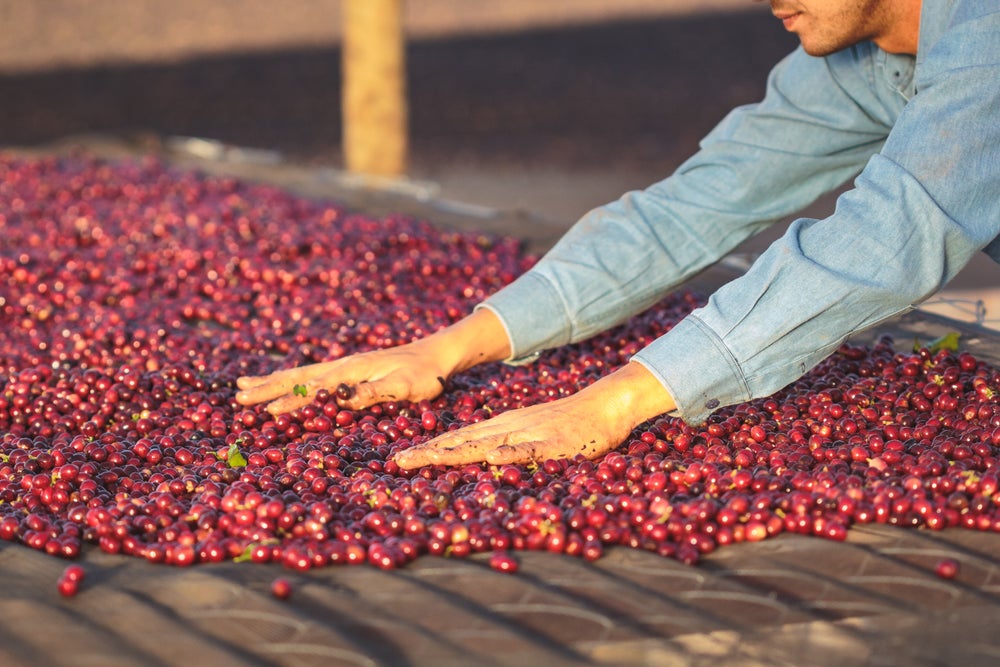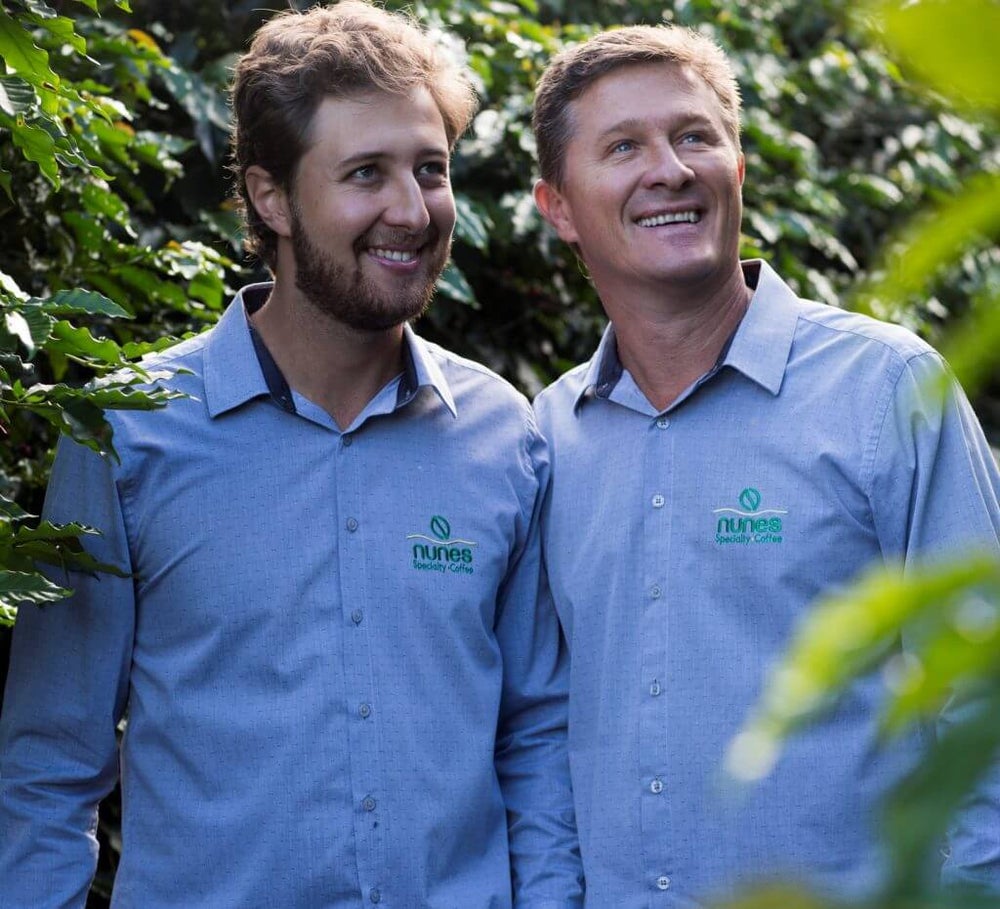About This Coffee
Osmar Pereira Nunes, the patriarch of the Nunes family, began the family tradition of farming with cattle raising. In 1984, Osmar’s son, Osmar Junior, planted 10 hectares of coffee on their Cerrado Mineiro farm. The next year, he planted another 7 hectares and continued expanding his coffee farm year after year for over 30 years. He says “There isn't greater fulfillment for the producer than arrive at the farm and smell the flowering coffee.”
Today, the third generation of Nunes men operates the farm. Gabriel, the son of Osmar Junior, is an agronomist who applies his knowledge of coffee farming to the family business.
Recently, Gabriel and Osmar Junior saw the changing market and shifted their coffee production from bulk commercial cultivation to more quality-focused specialty production. “Today it is necessary to balance the social, environmental and financial pillars of a farm for the business to thrive. Planting nowadays is about ensuring quality, making the correct soil management in order to reduce the use of inputs, having environmental awareness and understanding what the market seeks in the harvest,” Gabriel says.
The natural extension of this focus is attaining Sucafina’s IMPACT verification. The IMPACT program ensures that coffee is produced in accordance with specific social and environmental standards. The Nunes family got their IMPACT verification as a way to confirm that their coffee is produced in socially and environmentally friendly ways and to reach new markets for sustainable coffees.
Cultivation
To ensure high quality and strong yields, the Nunes family replants approximately 10 to 15% of their trees each year.
Brazil Harvest & Post-Harvest
Most Brazilian coffee is grown on huge farms, built and equipped for mechanical harvesting and processing that are designed to maximize productivity. The relatively flat landscape across many of Brazil’s coffee regions combined with high minimum wages has led most farms to opt for this type of mechanical harvesting over selective hand-picking.
In the past, this mechanization meant that strip-picking was the norm. However, today’s mechanical harvesters are increasingly sensitive, meaning that farms can selectively harvest only fully ripe cherries at each pass. This is great news for specialty-oriented producers.
In many cases and on less level sections of farms, a mixed form of ‘manual mechanized’ harvesting may be used. The derricadeira – a sort of mechanized rake that uses vibration to harvest ripe cherry - can be used to selectively pick ripe cherry more quickly and cost-effectively than individual hand pickers. A tarp is spanned between coffee trees to capture the cherry as it falls.
With the aid of these newer, more selective technologies, there’s a growing number of farms that are increasingly concerned with – and able to deliver - cup quality.
After harvest, cherry is typically laid to dry in thin layers on patios. Under direct sunlight, cherry is carefully monitored and turned frequently.
Coffee in Brazil
Just under 40% of all coffee in the world is produced in Brazil - around 3.7 million metric tons annually. With so much coffee produced, it’s no wonder that the country produces a wide range of qualities. Brazil produces everything from natural Robusta, to the neutral and mild Santos screen 17/18, to the distinctive Rio Minas 17/18. In recent years, Brazilian producers have also begun investing more heavily in specialty coffee production. Through our in-country partners in Brazil, including our sister company, we are able to provide a wide range of Brazilian coffees to our clients: from macrolot to microlot.
Today, the most prolific coffee growing regions of Brazil are Espirito Santo, São Paulo, Minas Gerais, and Bahia. Most Brazilian coffee is grown on large farms that are built and equipped for maximizing production output through mechanical harvesting and processing. The relatively flat landscape across many of Brazil’s coffee regions combined with high minimum wages has led most farms to opt for this type of mechanical harvesting over selective hand-picking.
In the past, mechanization meant that strip-picking was the norm; however, today’s mechanical harvesters are increasingly sensitive, meaning that farms can harvest only fully ripe cherries at each pass, which is good news for specialty-oriented producers.
In many cases and on less level sections of farms, a mixed form of ‘manual mechanized’ harvesting may be used, where ripe coffee is picked using a derriçadeira – a sort of mechanized rake that uses vibration to harvest ripe cherry. A tarp is spanned between coffee trees to capture the cherry as it falls.
With the aid of these newer, more selective technologies, there’s a growing number of farms who are increasingly concerned with – and able to deliver - cup quality.


